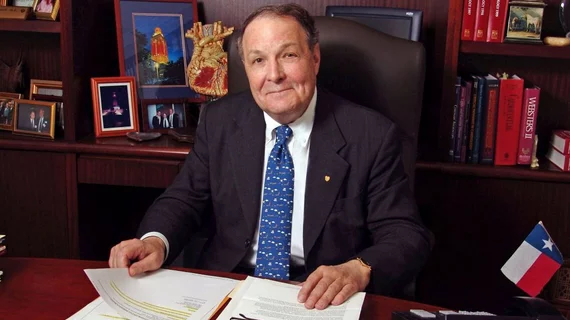‘A tremendous loss’: Beloved cardiologist James T. Willerson dies at 81
James T. Willerson, MD, a giant in modern cardiology, died Wednesday, Sept. 16, after a long illness. He was 81 years old.
Most recently serving as president emeritus at the Texas Heart Institute (THI), Willerson had a long career that included research focused on unstable atherosclerotic plaques, human stem cells and more.
He visited more than 260 institutions around the world as a visiting professor or invited lecturer and won numerous awards, including the American Heart Association’s Gold Heart Award in 2005. Willerson also served as president of the University of Texas Health Science Center in Houston from 2001 to 2008 and spent 11 years as editor-in-chief of Circulation.
“While his passing is a tremendous loss, Dr. Willerson’s indelible legacy will live on in perpetuity through his countless achievements in cardiovascular research and philanthropy, the passion that he poured into everything he accomplished throughout his life, and the immeasurable impact he made on the evolution of a world-renowned organization recognized in all corners of the globe,” Eric Wade, THI’s chairman of the board of trustees, said in a statement. “Dr. Willerson lived a tremendous life defined by curiosity and an eternally burning flame for the study of the human heart and its myriad complexities, and on behalf of the THI Board of Trustees, it is with a heavy heart that I share the news of his passing.”
Willerson was inspired to pursue a career in cardiology after a memorable meeting with the legendary Denton Cooley, MD, in the 1950s. He detailed that experience—and talked about his lifelong relationship with Cooley—in an interview with the European Heart Journal in 2018.

